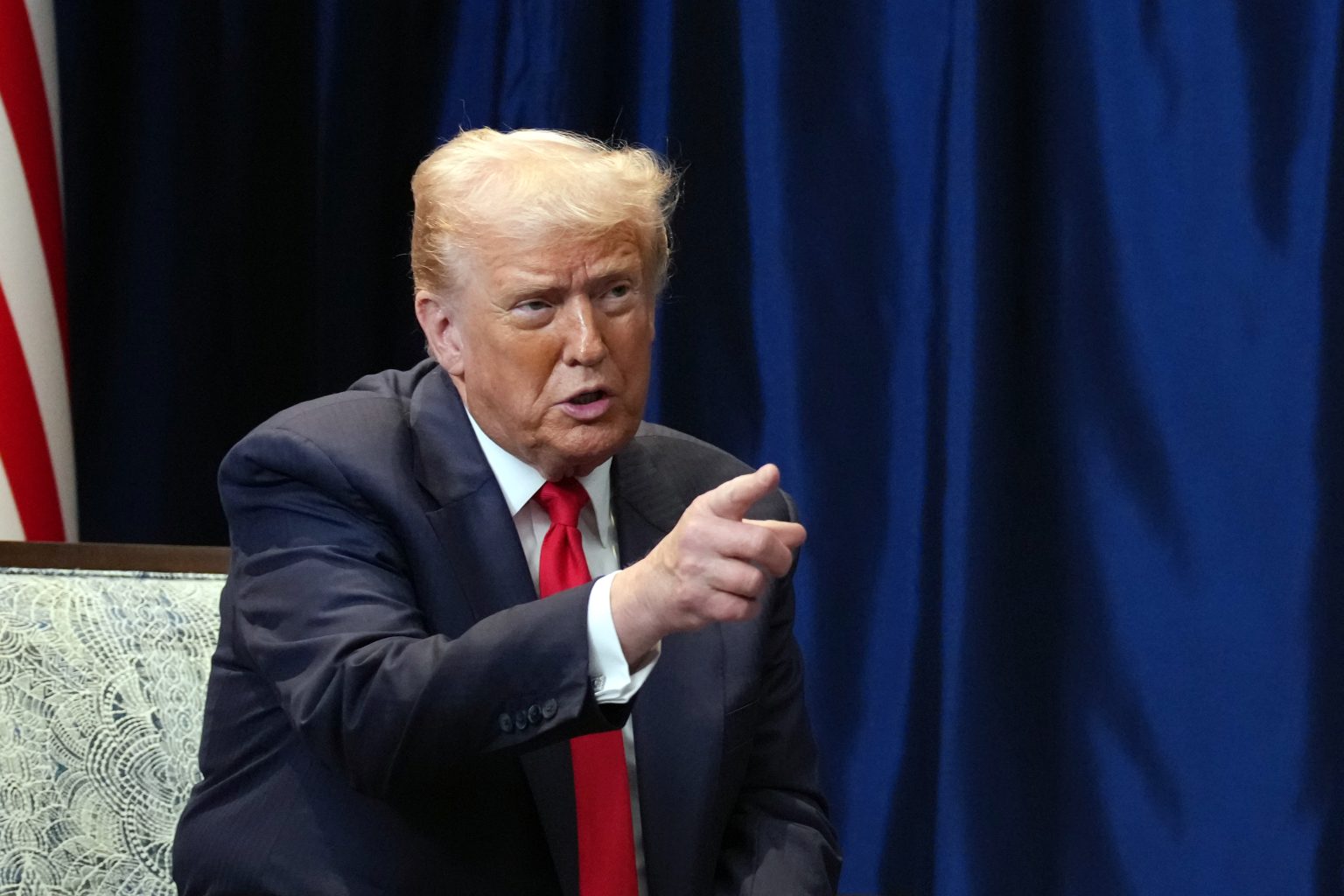Listen to the article
In a dramatic escalation of the government shutdown battle, President Trump has called for Senate Republicans to employ the controversial “nuclear option” to break the ongoing partisan impasse. This procedural maneuver would fundamentally alter how legislation moves through the upper chamber of Congress, potentially ending the shutdown but with far-reaching implications for American governance.
The nuclear option, formally known as “reform by ruling,” would allow Senate Republicans to bypass the traditional 60-vote threshold required to end debate on legislation. Instead, they could establish a new precedent with just a simple majority vote – potentially fast-tracking legislation with as few as 51 votes rather than the 60 typically needed.
“The procedure is more straightforward than its dramatic name suggests,” explained a senior congressional analyst. “A senator would challenge the application of a specific Senate rule, followed by a ruling from the presiding officer. The full Senate then votes on whether to uphold or overturn that ruling, and if 51 senators vote to overturn, the new interpretation becomes the precedent.”
This maneuver would effectively circumvent the normal process for amending Senate rules, which typically requires a two-thirds supermajority. The approach has gained traction during the shutdown as frustration mounts on both sides of the political divide.
However, several key Republican senators have publicly expressed reluctance to deploy such a drastic measure. Their concerns center on the long-term implications rather than the immediate political victory it might deliver.
“Once this precedent is established, it fundamentally alters the nature of the Senate as an institution,” noted a constitutional law expert from the Brennan Center for Justice. “It’s opening Pandora’s box to passing legislation with just a simple majority, which could have profound consequences when control of the chamber inevitably changes hands.”
The Senate has historically prided itself on being a deliberative body where consensus-building and compromise are valued. Critics argue the nuclear option would transform it into something more resembling the House of Representatives, where simple majorities rule the day.
This wouldn’t be the first time the Senate has employed the nuclear option. In 2011, Democrats invoked it to prevent unrelated amendments after debates. Two years later in 2013, they used it again to allow executive-branch and lower-court judicial nominees to advance with a simple majority – a move many Democrats later came to regret.
Republicans extended this precedent to Supreme Court nominations in 2017, paving the way for the confirmation of Justice Neil Gorsuch after Democrats had blocked the nomination. More recently, the Senate used the option to streamline the confirmation process for lower-level government officials.
However, applying the nuclear option to regular legislation would represent a significant escalation in its use and could permanently alter the Senate’s function in American democracy.
The elimination of the legislative filibuster – which the nuclear option would effectively accomplish – raises profound questions about the balance of power in Congress. Without the 60-vote threshold, whichever party holds a narrow majority could potentially ram through partisan legislation with minimal opposition or compromise.
“The Senate was designed to be the cooling saucer for legislation,” said a historian of congressional procedure. “If we remove that constraint, we risk undermining the institution’s role as a stabilizing force in our political system.”
As the government shutdown continues with no immediate resolution in sight, the debate over employing the nuclear option highlights the growing polarization in Washington and raises fundamental questions about how America’s legislative process should function in an era of intense partisan division.
Fact Checker
Verify the accuracy of this article using The Disinformation Commission analysis and real-time sources.




9 Comments
Interesting development in the government shutdown impasse. The nuclear option would certainly break the deadlock, but as the article notes, it could have far-reaching implications for how the Senate functions. I wonder how the public would react to such a dramatic procedural change.
Agreed, this is a major escalation that could set a concerning precedent. The 60-vote threshold has served an important role in fostering bipartisanship, so I’m wary of abandoning it without careful consideration of the long-term impacts.
Invoking the nuclear option to resolve the shutdown seems like a risky move. While it may end the impasse more quickly, the article highlights how it could fundamentally alter the balance of power in the Senate. I hope lawmakers carefully weigh the potential consequences before going down this path.
I share your concerns. The nuclear option could give one party outsized influence and erode the checks and balances that are crucial for our democracy. It’s a short-term solution with significant long-term risks.
As a mining and energy investor, I’m concerned about the potential impacts of the government shutdown, but I’m also wary of the nuclear option. While it may provide a quicker fix, the article makes clear that it could fundamentally reshape how the Senate operates. That’s not something to be taken lightly.
The nuclear option is a dramatic step, but perhaps necessary to break the shutdown impasse. While it may set a concerning precedent, I can understand the administration’s frustration with the current dysfunction. Hopefully any changes are implemented carefully and with an eye toward preserving the Senate’s deliberative role.
I appreciate the administration’s desire to resolve the shutdown, but the nuclear option seems like a risky gambit. The article rightly highlights the potential for far-reaching consequences that could undermine the balance of power. I hope cooler heads prevail and a more measured solution can be found.
As someone with an interest in mining and energy, I’ll be watching this situation closely. The government shutdown has already impacted some industry projects and operations. Resolving it is important, but I worry the nuclear option could lead to further political polarization down the line.
Good point. Prolonged gridlock in Washington is problematic for businesses and communities that rely on stable government policies and functioning agencies. But the nuclear option is a drastic measure that could backfire and exacerbate partisan divisions.